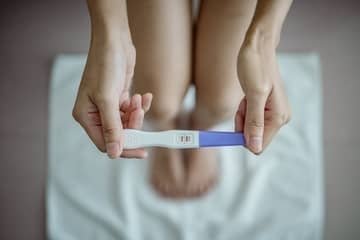
Groin pain during pregnancy. What does it mean?
During pregnancy, a woman experiences a number of specific symptoms that she does not encounter at other times. In addition to the well-known first signs of pregnancy such as morning sickness, vomiting, fatigue, frequent urination or breast pain, various other symptoms also appear during the later stages of pregnancy. These are related to extensive hormonal and physiological changes in a woman's body. One of the more frequent symptoms for the higher stages of pregnancy is groin pain.
This pain is often described by women as prickly, pulling and sometimes accompanied by swelling in the groin area. Some women describe this pain as muscle pain (muscle) after exercise or a strange pressure in the pelvis. Sometimes the pain can be localized only on one side. The cause of groin pain during pregnancy is that as the baby grows, develops, the uterus also enlarges. The baby presses on the area of the small pelvis, the uterus and the vessels in this area, which causes excessive pressure and an unpleasant pulling sensation. The elastic fibers then stretch and sometimes the woman may feel pain or occasional pricking in the groin area. It is precisely in this area that the ligaments that keep the uterus in place are located.
It is appropriate to practice exercises to strengthen the pelvic floor in time. A suitable aid is also a balloon - Aniball, with which it is suitable to exercise after the 36th week of pregnancy. It exercises the muscles of the pelvic floor and at the same time helps prepare the birth canal for a natural birth. Many women describe experiences with this phenomenon. Some felt an unpleasant pressure and others a prickling pain. Some women reported that the reason for the load on the pelvic floor and subsequent pain was the greater weight of the baby or its rotation and descent lower. If you experience intense pain that also spreads to the lower abdomen, it is advisable to consult a doctor about this condition, whether it is an infection, inflammation or another complication in pregnancy.
Pridať komentár






